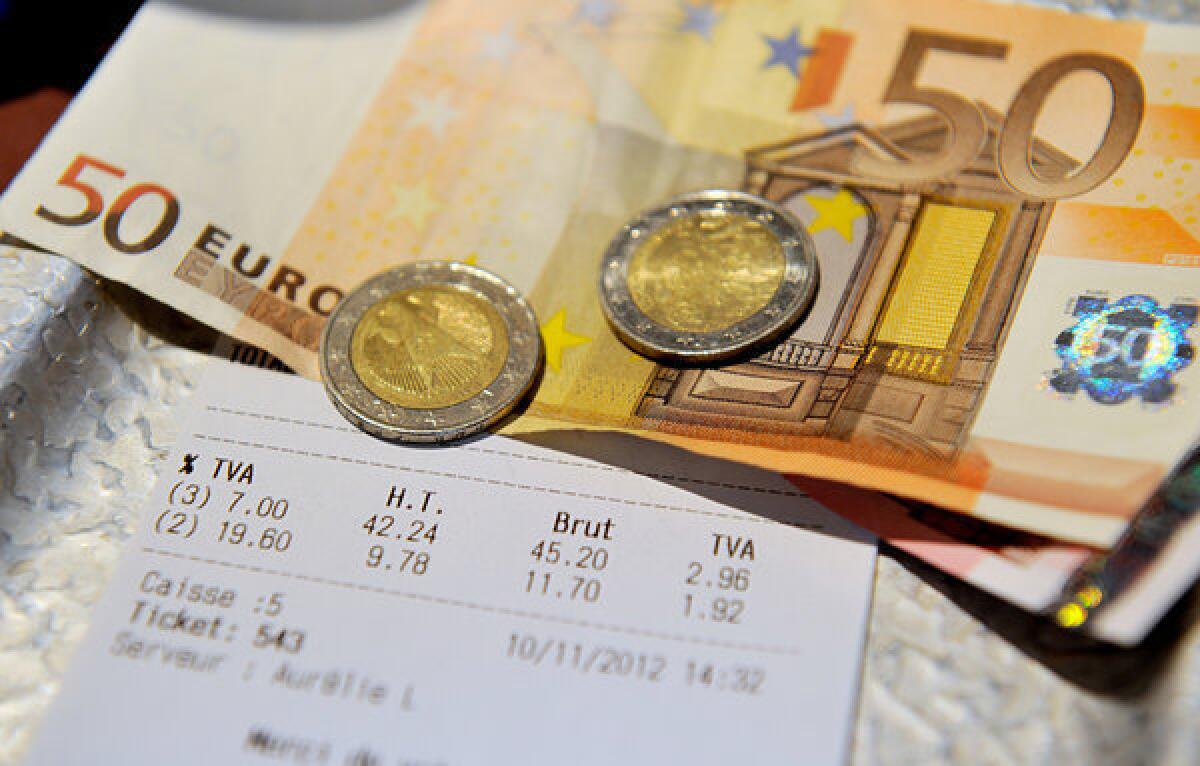Advice on tipping while traveling abroad

Question: How do I tip the people who take me by wheelchair for airline departures? Does the amount differ if it’s a tiny, easy airport like Long Beach; medium to normal like SFO; or long, complicated and very hard like Dulles? I’d appreciate advice.
Margo Kasdan
Seal Beach
Answer: Duck for cover. We’re about to poke the hornet’s nest again, creating yet another swarm of pro- and anti-gratuity camps, who have presumably been beefing since the word “gratuity” was first used in 1540, according to Merriam-Webster.
A Web page (www.lat.ms/Qm3M64) from EmilyPost.com, whose namesake was the expert on all matters of grace and style, said, “Especially when traveling, there are many situations when tipping comes into question. It is most important to remember that while tipping is meant to be a sign of appreciation for a particular service, it should first and foremost be accompanied by respectful treatment.”
And respectful treatment of one another when we talk about the subject, I hasten to add. Tipping is an art, but it’s not a science; even experts don’t agree.
In the “probably tip” column: April Masini, who writes AskApril.com, said in an email, “If someone gets you a wheelchair, you don’t have to tip them. ... However, if it’s a long roll to the gate, or if the person pushing you makes good time and rushes to get you to a plane on time, it’s a nice gesture to show your appreciation by tipping them anywhere from a couple of dollars to $5.”
In the “definitely, yes, tip” column: Frequent traveler Andy Abramson said in an email, “The tipping of porters, baggage handlers and greeters/transporters at the airport would be appropriate. ... Tipping is really up to the individual, but these employees are often paid closer to minimum wage than the people whom they are helping, so tipping them is really how they earn their money. They often are more helpful than the airline employees, know more about the airport and can be counted on to help someone get to where they need to be. They put up with a lot.”
In the “yes but make sure it’s appropriate” column: Bob Diener, president of GetaRoom.com and a constant traveler, said in an interview: “You don’t know if [the attendant] is a contractor or independent or an airline employee — a look at the uniform doesn’t always tell — so ask people if they can take it [a tip]. They’ll tell you.”
The tip should be based on time, he said. If it’s a short run between two gates, he suggests $3 to $5. For a more complicated situation, $5 to $20, “depending on how long they are with you.”
It’s tempting to say that a tip never offends, but I just did that — twice.
Diener noted that if you’re traveling abroad, you should read up on the customs of the country you’re visiting and make sure the source material is current.
I didn’t do that and managed to offend a tour guide in Australia who suggested that my money might better be given to homeless people. I offended again (or at least puzzled) when I tried to show my appreciation to two wheelchair attendants by offering gift cards that could have been used in their country.
Tipping is not common in Australia, Diener told me, so the best idea is to ask before the tip is proffered. It may feel awkward, but it’s not half as awkward as offending someone or, in some cases, doing something illegal, such as tipping a government employee (illegal in many places). For that reason, be cautious in Japan and China, where the Western tipping culture has not yet completely permeated their souls.
Discretion is always important, especially if you’re unsure.
The other important issue, Diener said: Tip in the local currency. Get a bit of local money before you go, stopping, if necessary, at a currency exchange booth before you leave the U.S. (the exchange rate may not be the best, but you’re paying for the convenience) or stopping at an ATM after you arrive in the airport. (It’s best to deal with ATMs at a bank, but an airport ATM might be worth the risk in a pinch. Just be ready to pay a foreign transaction fee of as much as 3% for your automated teller transaction.)
“Gratuity” springs from the Latin gratus, which means “pleasing” or “thankful.” Amazing how we can do the wrong thing by trying to do a right thing, but travel is a teacher, albeit occasionally a harsh one.
Have a travel dilemma? Write to travel@latimes.com. We regret we cannot answer every inquiry.
More to Read
Sign up for The Wild
We’ll help you find the best places to hike, bike and run, as well as the perfect silent spots for meditation and yoga.
You may occasionally receive promotional content from the Los Angeles Times.







